Question And Answer
Publications
Articles, publications, books, tools and multimedia features from the U.S. Institute of Peace provide the latest news, analysis, research findings, practitioner guides and reports, all related to the conflict zones and issues that are at the center of the Institute’s work to prevent and reduce violent conflict.
Post-Conflict Health Reconstruction:
A new USIP report examines how improving health systems in post-conflict countries can help promote peace and prevent renewed violence in those nations. In "Post-Conflict Health Reconstruction: New Foundations for a U.S. Policy," USIP fellow Leonard Rubenstein looks at health indicators in various hotspots around the world, and why addressing dire health situations can help advance peace and resolve conflicts, as well as boost the U.S's image abroad.
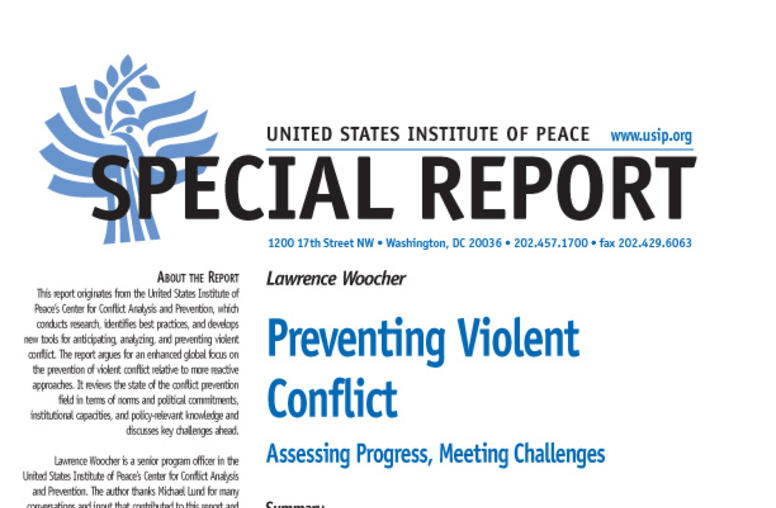
Preventing Violent Conflict
How well does the international community work to prevent the outbreak of new wars? In a special report, "Preventing Violent Conflict: Assessing Progress, Meeting Challenges," USIP's Lawrence Woocher examines the current status of conflict prevention as an international norm and argues for enhanced global attention on conflict prevention strategy relative to more reactive responses, such as post-conflict rebuilding and resolving existing conflicts.
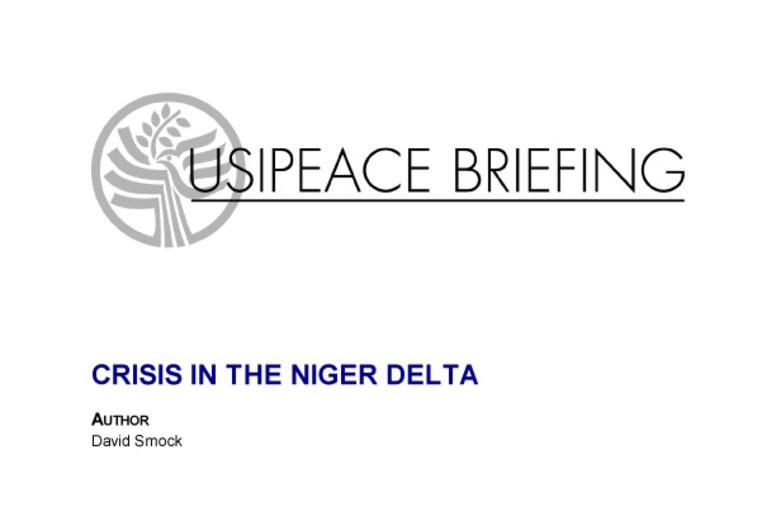
Crisis in the Niger Delta
USIP's David Smock explores the factors underlying and perpetuating the militancy in the oil-rich Niger Delta region of Nigeria. In this report, based on an 11-day trip to Nigeria in late August 2009, Smock analyzes the prospects for the amnesty process, and why stronger political processes and economic development could help address the roots of the conflict there.
Reinforcing Treasury’s Strategic Roles in International Affairs and National Security
Amid the global financial crisis, USIP explores the Treasury Department's current functions and resources as a foundation to more effectively strengthen financial institutions and combat illicit finance in non G-20 countries. USIP's Jeremy Pam describes how the Treasury Department might be better organized to play a greater strategic role in international affairs that addresses financial crises in developing countries and, in doing so, serves U.S. national security interests.
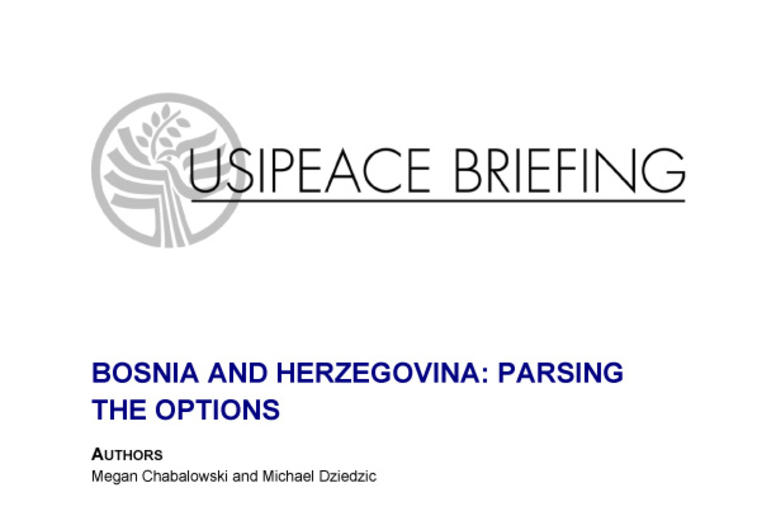
Bosnia and Herzegovina
USIP assesses several policy prescriptions and the areas of disagreement and agreement of how the international community and the region itself should address the problems in the struggling country.
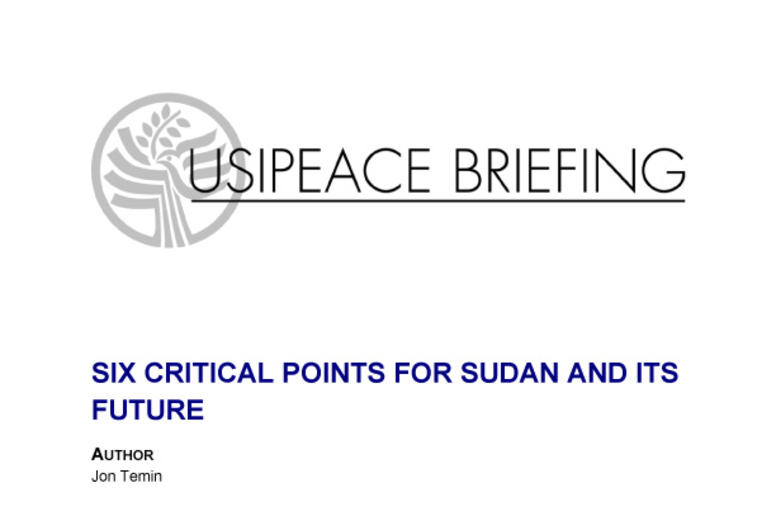
Six Important Issues for Sudan and Its Future
Most international attention devoted to Sudan has focused on the nationwide elections and the 2011 referendum on the status of southern Sudan. Yet, there are other aspects of the north-south dynamic deserving of discussion and strategic thinking that don't receive their due. In a new Peace Brief, USIP's Jon Temin examines six important issues and questions that require more consideration as the decisive events in Sudan’s political history approach.
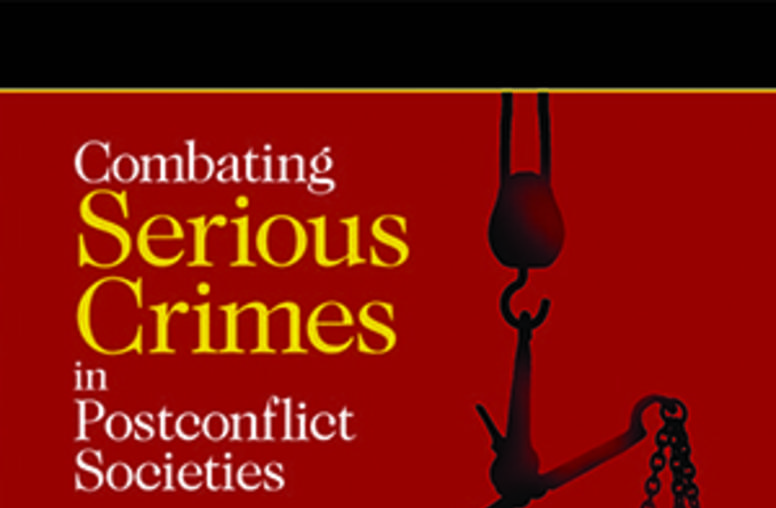
Combating Serious Crimes in Postconflict Societies
The Serious Crimes handbook is a reference tool for policymakers and practitioners who are designing strategies for tackling serious crimes in postconflict environments.
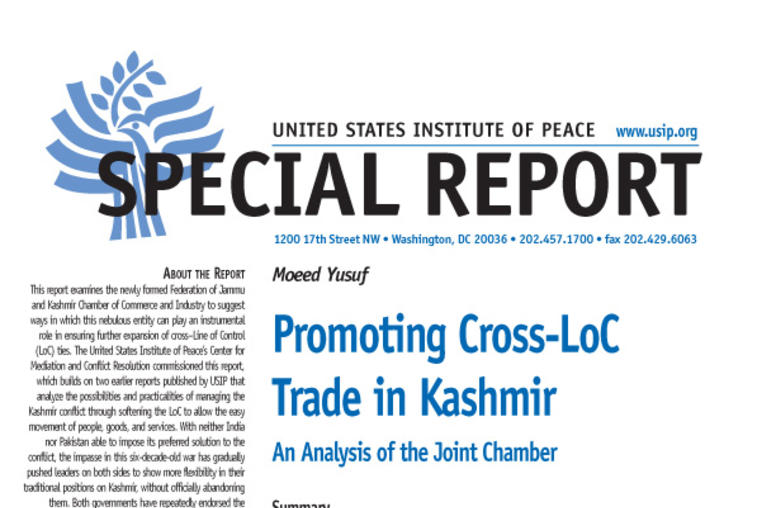
Promoting Cross-LoC Trade in Kashmir
The recent formation of the Federation of Jammu and Kashmir Chamber of Commerce and Industry has the potential to play a promising role in future efforts to reduce tensions between India and Pakistan over the disputed territory of Kashmir. In the special report, "Promoting Cross-Line of Control Trade in Kashmir," author Moeed Yusuf provides in-depth analysis of the fledgling entity and a concrete illustration of the opportunities and challenges of the way forward.
Negotiating with Iran: Questions and Answers
Contact: Meaghan Pierannunzi, USIP Press 202-429-4736; mpierannunzi@usip.org 1. Why should the United States bother thinking about Iranian-American negotiations, when, for the last three decades, the two countries’ dealings, whether open or secret, direct or indirect, have been mired in futility? The United States and Iran should be talking because both sides will find significant common interests in so doing. Talking to Iran, hard and disagreeable as it might be, is likely to be more...
Praise for Negotiating with Iran
“Negotiating with Iran should be read not just by foreign service officials but also by academics and general readers interested in U.S.-Iran relations.” —Ervand Abrahamian, Baruch College, CUNY “This is an excellent book and an important contribution to what is rapidly becoming the central issue in American foreign policy. Limbert draws on years of professional and personal experience to explore and explain the problematic nature of Iran-U.S. relations and to offer coherent and constructi...